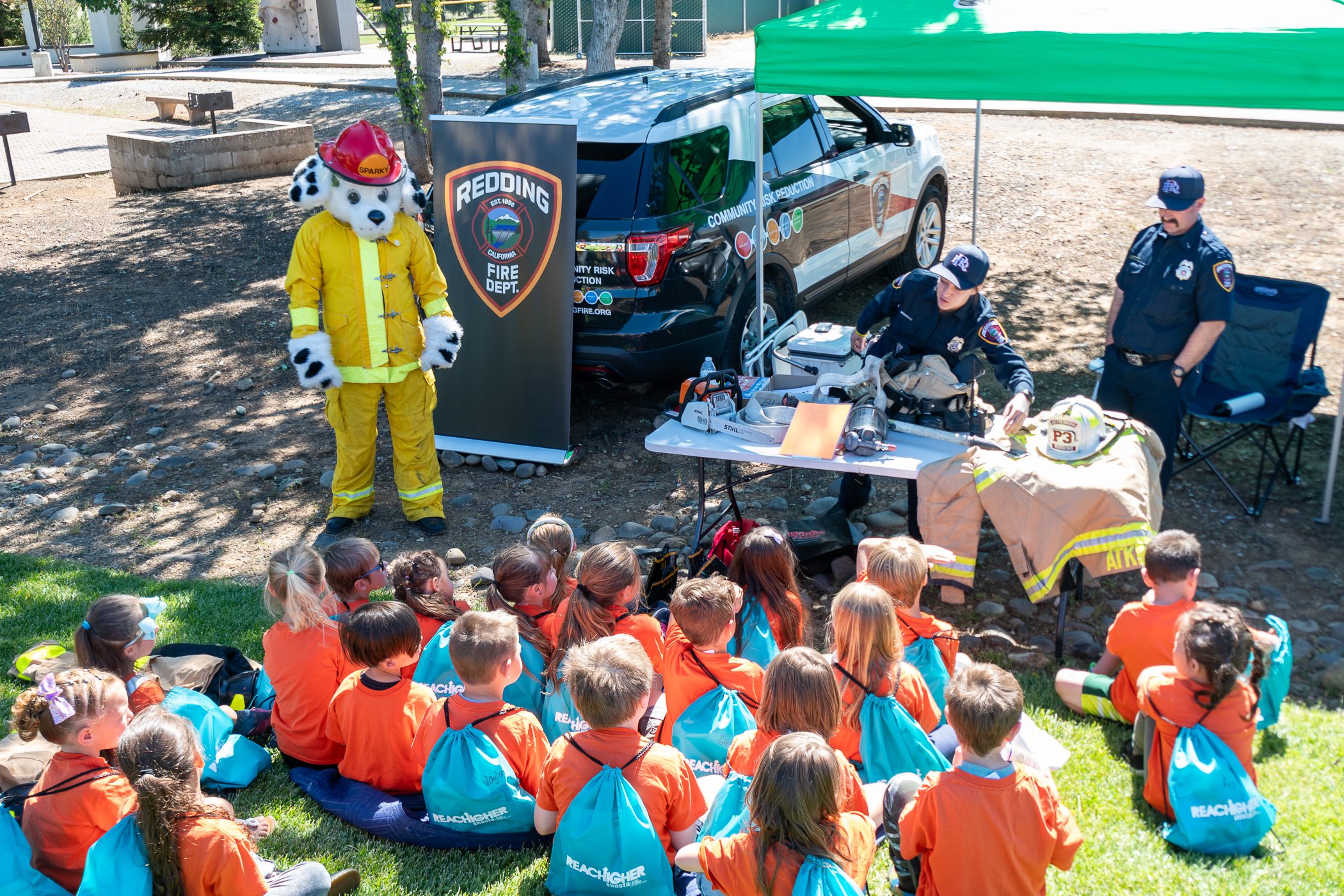Recognizing Quality Institution: Key Truths and Interesting Tasks for Every Trainee
Elementary school functions as an essential structure for pupils, mixing academic discovering with the advancement of social skills. This period is vital for promoting emotional intelligence and durability. Involving activities can enhance interest and motivation, however the challenge hinges on locating the appropriate equilibrium. As moms and dads and teachers navigate this landscape, recognizing the complex nature of elementary school becomes crucial. What strategies can successfully support pupils in this transformative stage?
The Importance of Social Skills in Elementary School
Although scholastic expertise is important, social abilities play a crucial function in grade school advancement. During these formative years, youngsters discover to interact with their peers, discuss conflicts, and develop friendships. Social skills include an array of competencies, including efficient interaction, compassion, and synergy. These abilities allow trainees to navigate the intricacies of social dynamics within the class and past.
As children take part in team activities and collaborative projects, they develop vital social abilities that add to their psychological knowledge. This foundational experience fosters a feeling of belonging and enhances general health. Furthermore, children who have strong social skills have a tendency to experience far better scholastic outcomes, as they are more probable to participate actively in discussions and seek assistance when required.

Essentially, the growing of social skills during grade school is not just advantageous however vital for promoting an all-round person gotten ready for future difficulties.
Stabilizing Academics and Imagination
As pupils proceed with elementary school, stabilizing academics with creative thinking becomes crucial to their general development. This equilibrium fosters vital reasoning, problem-solving, and technology, abilities required for future success. Academic topics provide fundamental expertise, while creative activities encourage trainees to express themselves and discover new ideas.
Integrating imagination into the curriculum can boost involvement and inspiration, allowing students to attach with the product on a deeper degree (Private School). Projects that mix topics, such as art and scientific research, can stimulate inquisitiveness and advertise a love for knowing
Imaginative outlets like music, dramatization, and visual arts aid students create emotional knowledge and strength. These experiences add to a well-rounded education and learning, preparing students for a swiftly altering globe.
Eventually, focusing on both academics and imagination equips trainees with a varied ability, enabling them to browse challenges and confiscate possibilities efficiently throughout their instructional journey and past.
Involving Activities to Boost Knowing
Countless interesting activities can substantially enhance discovering experiences for quality college students. These activities not just make finding out enjoyable however additionally aid reinforce necessary principles. Hands-on experiments in science courses permit students to explore theories almost, cultivating curiosity and much deeper understanding. Interactive narration sessions can boost literacy skills while sparking creativity and imagination.
Team projects encourage partnership, mentor trainees the value of team effort and communication. Incorporating innovation, such as instructional video games and electronic tests, can likewise astound students' attention and make learning even more vibrant. Arts and crafts projects can help in the growth of great electric motor abilities while giving a creative electrical outlet.
In addition, outside activities, like nature walks or scavenger hunts, connect trainees with the environment and advertise physical health. By incorporating these appealing tasks into the educational program, instructors can develop a boosting discovering environment that satisfies varied understanding designs and maintains trainees inspired.
The Role of Adult Support in Education
Adult support plays a substantial duty in the academic journey of quality institution students. Study suggests that when parents actively take part in their youngster's education, it favorably influences academic efficiency, motivation, and general well-being. Kindergarten. Constant involvement, whether through homework help or participating in institution see here events, cultivates a feeling of security and reinforces the value of education and learning
Efficient communication between educators and parents enhances the discovering experience. Moms and dads who team up with educators can better recognize their child's difficulties and toughness, enabling tailored support. This collaboration urges accountability and sets high assumptions for pupils.
Additionally, parental mindsets towards education and learning substantially affect children's perspectives. When moms and dads demonstrate a positive expectation on knowing, it grows curiosity and strength in their kids. Inevitably, the foundation of parental support is essential fit students' perspectives, habits, and academic success throughout their grade institution years.
Developing a Positive Discovering Setting
Developing a favorable learning environment is essential for cultivating scholastic success and psychological wellness among elementary school pupils. Such a setting advertises involvement, urges cooperation, and boosts inspiration. Teachers play a considerable function in establishing this atmosphere by implementing approaches that prioritize assistance, respect, and inclusivity.
Class management practices, such as clear expectations and positive comments, are necessary in supporting a feeling of security. Additionally, including diverse training approaches can deal with various learning styles, guaranteeing that all trainees really feel valued.
Motivating peer interactions and team tasks also grows social skills and a sense of community. Celebrating success, no issue how tiny, strengthens positive habits and increases self-esteem.
Ultimately, a positive discovering environment not just enhances scholastic performance yet also cultivates emotional durability, assisting pupils flourish both inside and outside useful link the class. This foundation is considerable for their total advancement and long-lasting knowing journey.
Approaches for Developing Critical Believing Abilities
Effective techniques for creating critical believing abilities in elementary school include motivating inquiry-based understanding and promoting analytical tasks. Inquiry-based knowing fosters interest and enables pupils to discover concerns, while analytical tasks test them to apply their understanding in sensible situations. Together, these techniques improve trainees' capacity to assume critically and independently.
Motivating Inquiry-Based Discovering
Just how can instructors cultivate a class setting that promotes inquiry-based knowing? Teachers can create an ambience that urges curiosity by posing open-ended inquiries and facilitating discussions that prompt students to explore various perspectives. Urging pupils to ask their very own inquiries can even more stimulate their crucial thinking skills. Including hands-on tasks and real-world troubles allows trainees to engage straight with the material, fostering much deeper understanding. In addition, providing opportunities for collaborative projects can improve peer-to-peer learning, where trainees share insights and improve each other's concepts. By incorporating innovation and resources that sustain exploration, teachers can help pupils take possession of their learning trip, thus cultivating a way of thinking of inquiry that extends beyond the class.
Advertising Problem-Solving Activities
While promoting problem-solving tasks in the classroom, educators can substantially improve pupils' essential thinking skills. By including hands-on projects, seminar, and real-world circumstances, instructors urge trainees to analyze situations, identify patterns, and discover multiple solutions. Involving trainees in collective difficulties not just promotes teamwork yet likewise improves their capacity to verbalize reasoning and justify their choices. Additionally, incorporating technology with coding exercises or simulations can stimulate imaginative problem-solving techniques. Evaluating students' mind through reflective methods permits deeper understanding and enhancement. On the whole, promoting analytical tasks grows an environment where vital assuming thrives, gearing up trainees with crucial abilities for future academic and life challenges. These techniques eventually prepare students to navigate complex problems with confidence and advancement.

Frequently Asked Concerns
What Age Do Kid Typically Begin Elementary School?
Children usually begin quality school at around age 6. This age can differ a little depending on local academic plans and specific preparedness, yet 6 years of ages is the most common starting point for formal education.
Exactly How Can I Assist My Kid With Research?
To aid with homework, moms and dads can develop an organized atmosphere, develop a regular, encourage questions, supply sources, and use assistance without offering direct solutions, fostering independence and important thinking in their kid's understanding process.
What Prevail Quality College Discovering Obstacles?
Common elementary school finding out obstacles consist of difficulties with checking out understanding, math concepts, interest period, and social skills. These barriers can affect scholastic efficiency and require tailored support to help trainees achieve their full capacity.
Just How Can Moms And Dads Connect Properly With Educators?
Efficient interaction in between educators and parents can be accomplished through normal updates, open dialogues, scheduled meetings, and active listening. Building a joint connection promotes understanding and supports the kid's instructional journey favorably.
What After-school Activities Are Readily Available in Quality Institution?
Elementary school commonly use a variety of extracurricular tasks, including sports groups, songs and art programs, dramatization clubs, and scholastic competitors. These activities improve social abilities, foster teamwork, and motivate imagination among students outside the class.

Quality college offers as an essential structure for pupils, blending scholastic understanding with the development of social skills. Many appealing tasks can considerably boost learning experiences for quality college students. Producing a positive understanding setting is crucial for cultivating academic success and psychological health among grade college students. Inquiry-based learning fosters inquisitiveness and allows trainees to check out questions, while problem-solving activities challenge them to use their knowledge in sensible circumstances. While promoting analytical activities in the classroom, Full Report educators can significantly improve trainees' vital reasoning abilities.